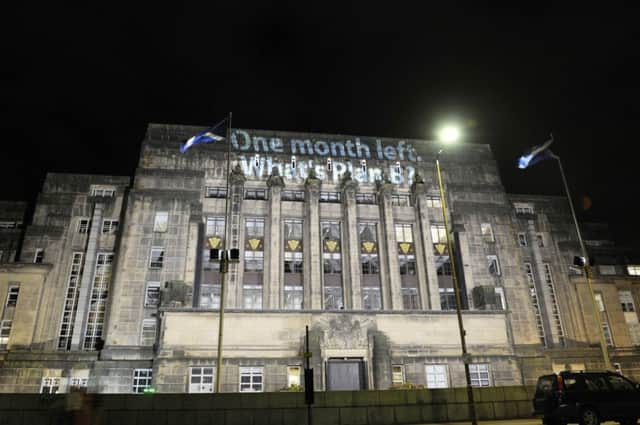John Curtice: Referendum voters make up own minds


The No campaign’s approach is often the stance adopted by the opponents of change in referendums, and indeed by incumbent governments when seeking re-election.
One of the No side’s persistent claims has been that independence would put Scotland’s membership of the European Union at risk. This would appear to be a claim that many voters could be expected to greet with concern. Half of Scots think an independent Scotland should seek to be a member of the European Union, while only a little under a third (31 per cent) think it should not.
Advertisement
Hide AdAdvertisement
Hide AdHowever, to be effective the claim also needs to be credible in voters’ eyes. In this respect the No side’s efforts appear to have reaped little reward.
Nearly two-thirds (64 per cent) still believe that Scotland would “definitely” or “probably” be allowed to join the EU. Only 15 per cent reckon it definitely or probably would not.
Even those backing the No side are sceptical of their side’s claim. Half of them reckon that an independent Scotland would be a member of the EU, while only a little over a quarter (28 per cent) believe it would not.
At the same time, Yes supporters are comforted by the thought that independence would not put Scotland’s EU membership at risk. No less than 86 per cent take that view.
Meanwhile, the No side’s claim is, if anything, less widely believed now than it was six months ago. The proportion who think that an independent Scotland would definitely or probably be able to join the EU is seven points higher than it was when ICM last addressed the issue in February.
These findings follow on from results reported in Scotland on Sunday yesterday that only 38 per cent think an independent Scotland would not be able to use the pound in a monetary union with the rest of the UK, a figure close to the 35 per cent who were of that view in February.
Doubtless during the next month both campaigns will be tempted to try and persuade us of the risks of voting either Yes or No. They need to remember that voters do not necessarily believe everything they are told.
• John Curtice is Professor of Politics, Strathclyde University